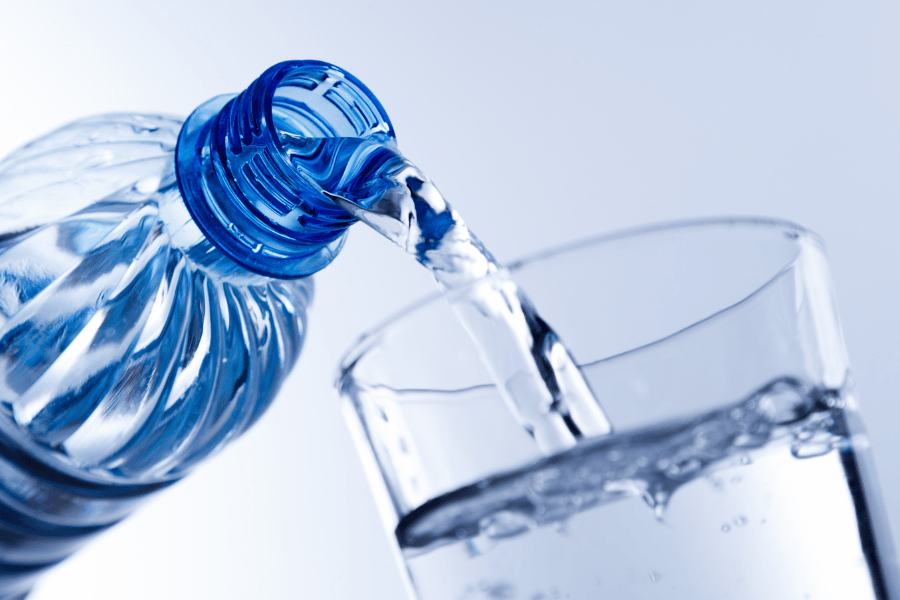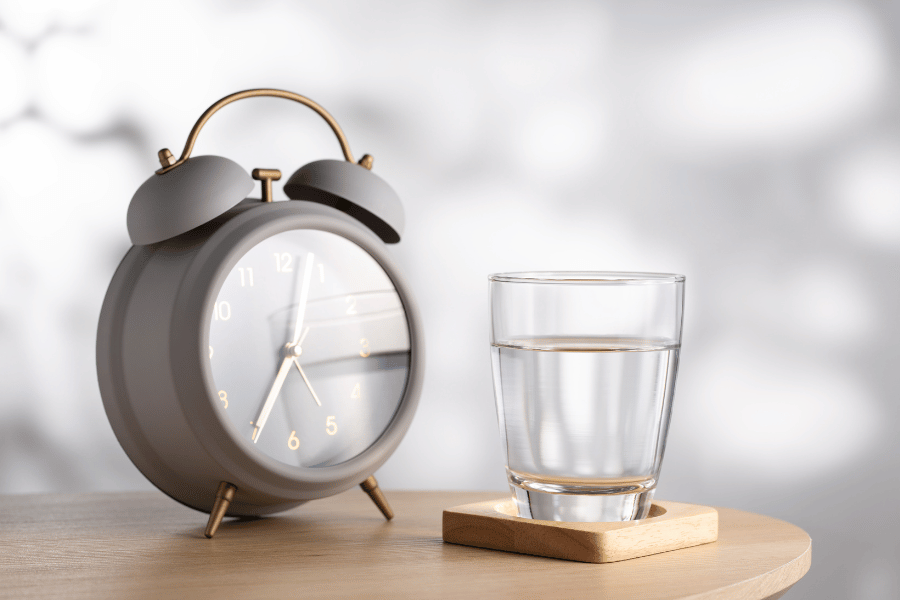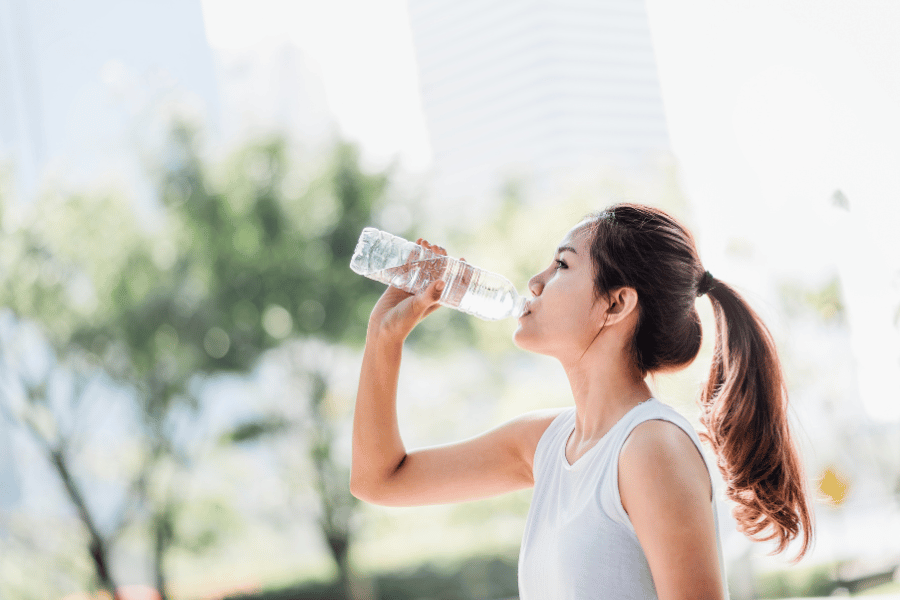Hydration, the process of making something absorb water, is a crucial aspect of maintaining optimal health. The human body, comprising about 60% water, relies heavily on hydration for various essential functions. In this article, we will explore the pivotal question: “How much water should I drink a day” for optimal health. Understanding the role of water in our bodies and how it contributes to our overall health is the cornerstone of this discussion. We’ll delve into the daily water intake guidelines, recognize the signs of dehydration and overhydration, and offer practical tips for staying adequately hydrated. This article aims to provide a comprehensive understanding of hydration and its impact on our well-being.

Understanding the Role of Water in the Human Body
Water is not just a fundamental component of our planet; it’s also a key element of the human body, playing a vital role in its functioning. Understanding this role is essential to comprehend why maintaining proper hydration is crucial for our health.
Water’s Contribution to Bodily Functions:
- Transport of Nutrients and Oxygen: Water acts as a medium for carrying nutrients and oxygen to cells, ensuring that the body functions efficiently.
- Regulation of Body Temperature: Through perspiration, water helps regulate body temperature, especially in hot environments or during physical activity.
- Joint Lubrication: It lubricates joints, reducing friction and easing movement.
- Digestive Processes: Water aids in digestion, helping break down food and promoting regular bowel movements.
- Detoxification: It plays a key role in removing waste products and toxins from the body through urine and sweat.
Health Benefits of Proper Hydration:
Staying well-hydrated has numerous health benefits, including:
- Enhanced Physical Performance: Proper hydration contributes to improved endurance and physical performance.
- Cognitive Function: Adequate water intake is associated with better cognitive abilities, including concentration and alertness.
- Skin Health: It helps maintain skin moisture and elasticity, contributing to a healthy appearance.
- Weight Management: Water can aid in weight loss and maintenance by promoting satiety and enhancing metabolic processes.
By understanding these roles and benefits, we can appreciate why the question of “how much water should I drink a day” is not just about quenching thirst but about supporting our body’s overall function and well-being.

How Much Water Should You Drink Each Day?
Determining “how much water should I drink a day” is a question that doesn’t have a one-size-fits-all answer, as individual hydration needs vary based on several factors.
Factors Influencing Hydration Needs:
- Physical Activity: The more active you are, the more water you lose through sweat, and thus, the more you need to consume.
- Environmental Conditions: Hot or humid weather increases perspiration, requiring additional fluid intake. High altitudes may also increase water needs.
- Health Conditions: Certain medical conditions, like kidney stones or urinary tract infections, require increased water intake. Conversely, heart conditions or kidney disease may require restrictions.
- Diet: High salt, protein, or fiber diets may increase water requirements.
- Pregnancy and Breastfeeding: Women who are pregnant or breastfeeding need additional fluids to stay hydrated.
Daily Water Intake Guidelines:
- General Guidelines: The U.S. National Academies of Sciences, Engineering, and Medicine recommends about 3.7 liters (125 ounces) per day for men and about 2.7 liters (91 ounces) for women. This includes fluids from water, beverages, and food.
- During Physical Activity: It’s recommended to drink an extra 1.5 to 2.5 cups (400 to 600 milliliters) of water for short bouts of exercise. More intense or longer-duration activities may require more.
- Based on Thirst and Urine Color: Drinking water when thirsty and ensuring urine is light yellow are simple, effective methods to ensure adequate hydration.
Incorporating the key phrase, “how much water should I drink a day”, is more than a query – it’s a reminder of the personalized nature of hydration. Understanding your body’s needs and adapting your water intake accordingly is crucial for optimal health.
Signs of Dehydration and Overhydration
Understanding the signs of both dehydration and overhydration is crucial for maintaining a healthy balance. These conditions can lead to serious health implications if not addressed promptly.
Signs of Dehydration:
Dehydration occurs when your body doesn’t have enough water to perform normal functions. Symptoms include:
- Thirst: This is the most basic signal that your body needs more water.
- Dark Urine: Dark yellow or amber-colored urine is a common indicator.
- Fatigue: Feeling unusually tired or lethargic can be a sign of dehydration.
- Dizziness and Headaches: These can occur as the brain temporarily contracts due to fluid loss.
- Dry Skin and Lips: Dehydration often leads to dry skin and chapped lips.
Risks Associated with Dehydration:
- Impaired Cognitive Function: Dehydration can affect concentration, memory, and mood.
- Kidney Problems: Chronic dehydration can lead to kidney stones and other renal complications.
- Digestive Issues: Insufficient water intake can disrupt normal digestion and cause constipation.
Signs of Overhydration:
Overhydration, or hyponatremia, is less common but can be equally dangerous. It occurs when the intake of water dilutes the body’s sodium levels. Symptoms include:
- Nausea and Vomiting: An early sign, often accompanied by headache.
- Headache: Can range from mild to severe.
- Swelling or Discoloration of Hands, Lips, and Feet: This indicates an imbalance in body fluids.
- Confusion or Disorientation: Severe cases of overhydration can impact brain function.
Risks Associated with Overhydration:
- Electrolyte Imbalance: Can lead to irregular heartbeat, seizures, and in extreme cases, coma.
- Stress on the Heart: Excess fluid can strain the heart and affect its ability to pump blood effectively.
- Kidney Problems: Overhydration can overload the kidneys, impairing their ability to filter excess water.
Recognizing these signs is vital for anyone concerned about their water intake, particularly when asking, “how much water should I drink a day?” Balancing your water intake to match your body’s needs is the key to avoiding these risks.

Tips for Staying Hydrated
Staying adequately hydrated is a fundamental aspect of good health. Here are some practical tips to ensure you’re meeting your daily water needs, especially if you’re wondering “how much water should I drink a day?”
Practical Advice for Increasing Water Consumption:
- Start Your Day with Water: Begin each day with a glass of water to kickstart your hydration.
- Carry a Water Bottle: Keeping a water bottle with you throughout the day can remind you to take regular sips.
- Set Reminders: If you often forget to drink water, set reminders on your phone or computer.
- Eat Water-Rich Foods: Incorporate fruits and vegetables like cucumbers, tomatoes, oranges, and watermelons, which have high water content.
- Hydrate Before, During, and After Exercise: This is especially important if you sweat a lot during workouts.
Strategies for Incorporating More Water:
- Flavor Your Water: If you don’t like the taste of plain water, try adding a slice of lemon, lime, or cucumber for some natural flavor.
- Choose Water Over Other Beverages: Opt for water instead of sugary drinks or alcohol, particularly with meals.
- Use a Straw: Some people find they drink more water when using a straw.
- Monitor Your Urine Color: Use it as a guide to adjust your water intake; aim for pale yellow.
By implementing these tips, you can increase your water intake without feeling overwhelmed. Remember, hydration doesn’t have to be a chore – it can be a simple, refreshing part of your daily routine.
Myths and Misconceptions About Hydration
Hydration is a fundamental aspect of health, but it is often surrounded by myths and misconceptions. Debunking these and understanding the evidence-based facts is key to proper hydration, especially when considering the critical question: “how much water should I drink a day?”
Debunking Common Myths:
- Myth: Everyone Needs to Drink 8 Glasses of Water a Day: This is a generalized recommendation and doesn’t account for individual differences in size, activity level, and environment.
- Myth: You Can Only Hydrate with Water: While water is the best source of hydration, other beverages and foods also contribute to your daily fluid intake.
- Myth: Drinking Lots of Water Helps to Lose Weight: While water can aid in a weight loss regimen by replacing high-calorie drinks and promoting fullness, it is not a magic weight-loss solution.
- Myth: If You’re Not Thirsty, You’re Hydrated: Thirst isn’t always a reliable indicator, especially in older adults or during intense exercise.
Clarifying Misconceptions with Evidence-Based Information:
- Overhydration is as Risky as Dehydration: Both extremes can have adverse effects on health.
- Urine Color as a Hydration Indicator: Light yellow urine typically indicates good hydration, whereas dark urine suggests a need for more fluids.
- Individualized Hydration Needs: Factors like body size, climate, activity level, and overall health should guide your water intake.
- Hydration for Health Conditions: People with certain medical conditions, such as kidney disease or heart problems, may have specific hydration requirements.
By understanding these truths about hydration, you can more effectively gauge how much water you should be drinking each day, tailored to your personal health and lifestyle needs.
FAQ Section: Understanding Daily Water Intake
“Quenching Queries: Insights on Daily Hydration Needs” aims to address common questions about hydration, providing clear insights into daily water consumption.
Q1: How can I tell if I’m drinking enough water?
A: The simplest method is to observe the color of your urine. Pale yellow urine typically indicates adequate hydration, while dark yellow or amber urine suggests you need more water. Also, if you rarely feel thirsty and your urine output is about 1.5 liters (6.3 cups) or more per day, it’s likely that you’re well-hydrated.
Q2: Does the water content in food count towards my daily intake?
A: Yes, the water content in foods, especially fruits and vegetables, contributes to your daily water intake. For instance, foods like watermelon, cucumbers, and oranges are over 90% water.
Q3: Can drinking too much water be harmful?
A: Yes, overhydration or hyponatremia can occur when you drink more water than your kidneys can remove through urine. This can lead to low sodium levels in the blood, which can be dangerous.
Q4: Do coffee and tea contribute to hydration?
A: Contrary to popular belief, caffeinated beverages like coffee and tea can contribute to your daily water intake. While caffeine has a mild diuretic effect, it’s not strong enough to counteract the hydration gained from these drinks.
Q5: How much more water should I drink when exercising?
A: It depends on the duration and intensity of the exercise, as well as the environment. A general rule is to drink an additional 1.5 to 2.5 cups (400 to 600 milliliters) of water for short bouts of exercise. However, more intense or longer-duration activities will require more hydration.
Q6: Are sports drinks better than water for hydration?
A: For most people, water is sufficient for hydration. Sports drinks can be beneficial during long-duration, high-intensity exercise or in hot climates as they provide electrolytes and carbohydrates for energy.
Q7: How does hydration affect skin health?
A: Proper hydration can improve skin health by maintaining its elasticity and appearance. However, over-hydrating won’t necessarily eliminate wrinkles or skin problems.
Q8: Does hydration affect weight loss?
A: While hydration alone doesn’t cause weight loss, it can support weight loss efforts. Drinking water can increase feelings of fullness and boost metabolic rate slightly.